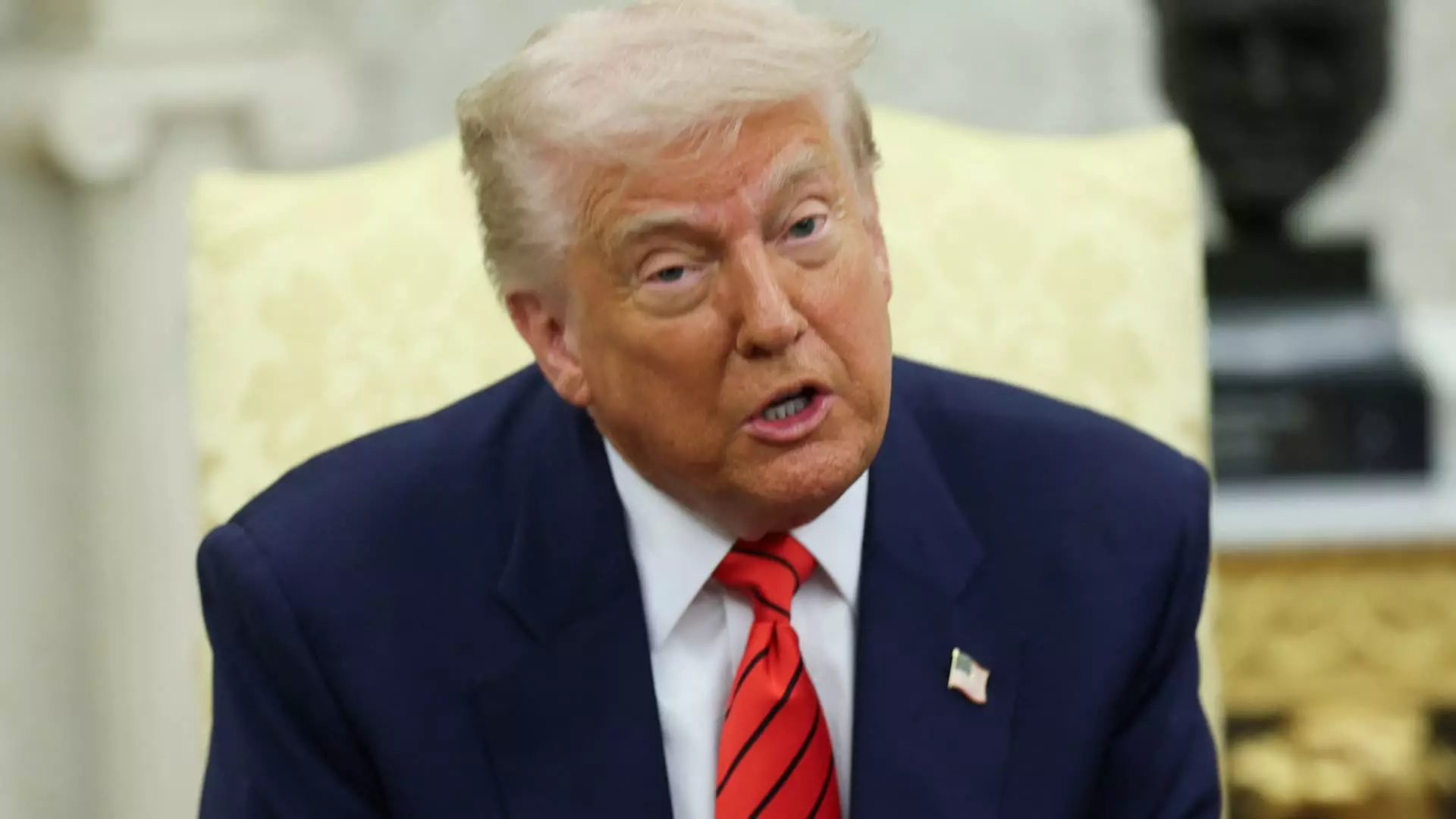In an unexpected twist that left many analysts scratching their heads, President Donald Trump recently declared during a meeting about U.S. trade policy that deals with international partners aren’t necessary. “We don’t have to sign deals, they have to sign deals with us,” he asserted, revealing a starkly unilateral approach to trade relationships. This comment starkly contrasts the narrative that had been built by his administration, suggesting that formal agreements were not merely desired, but essential in reestablishing America’s position in the global marketplace. Trump’s remarks highlight a deep-rooted misunderstanding of international diplomacy—wheregive-and-take is often the cornerstone of successful negotiations.
For months, the administration had touted the benefits of securing bilateral agreements. However, the abrupt dismissal of such discussions raises questions about coherence in policy and strategic thinking. Markets reacted negatively to Trump’s comments, and rightly so; a strong economy cannot rely solely on America’s perceived dominance over its trading partners. Rather, robust economic growth demands collaboration and commitment to mutual benefits.
A Shift in the Narrative
Trump’s comments come after a seemingly concerted effort to publicize the administration’s ambitions in securing trade deals with major nations like India, South Korea, and Japan. Yet here we see a pivot from optimistic declarations to a straightforward dismissal of the necessity for formal agreements. Describing himself as a “super luxury store,” he conflates trade negotiations with positioning the U.S. as the pre-eminent market, but fails to recognize that international relations operate on a bedrock of trust and cooperation.
Such rhetoric may resonate with a core base that appreciates a “tough guy” image in negotiations. However, any successful leader must understand that diplomacy involves a certain level of art; it’s not merely about projecting power but creating opportunities for mutually beneficial partnerships. By devaluing the significance of formal agreements, the administration risks fabricating an illusion of strength that could ultimately undermine long-term economic stability.
The Question of Overpromising
The president’s critique of his aides for allegedly overpromising on potential deals is particularly revealing. By pointing fingers, Trump sidesteps accountability and, in doing so, reveals the administration’s broader weakness in trade policy. In the political arena, it is somewhat common to engage in grandstanding, but there’s a fine line between articulating bold vision versus making unfounded assertions that can erode credibility.
When Treasury Secretary Scott Bessent and others suggest that deals are “very close” but provide little evidence to back these claims, they open themselves to skepticism, and rightly so. Investors and business leaders alike are growing weary of empty promises without actionable outcomes. When the president himself seemingly contradicts the very sentiments of his aides, it’s difficult to ascertain who truly holds the reins when it comes to U.S. trade strategy.
Market Repercussions
With every unguarded comment, the health of U.S. markets teeters precariously. The latest remarks from Trump have led to drops in stock prices, as uncertainty begat by ambiguity is a fear-inducing force. Businesses function best within a predictable environment, and without clear direction from the administration, they are left guessing, stalling investment, and potentially throttling economic growth when it needs to be sustained. This lack of clarity is a heavyweight burden on American entrepreneurs, who are essential to driving innovation and job creation.
Trump’s repeated insistence on the superiority of the American market, while striking in its boldness, highlights a rather one-dimensional view of global commerce. Maneuvering through tariffs, sanctions, and trade wars requires deft handling of relationships built over decades. Such fundamental disconnects from the realities of trade could lead to consequences that ripple throughout the economy.
The apparent disarray within the administration concerning trade policy is a cause for concern among centrist and right-leaning liberals who recognize that foreign relations require both firmness and flexibility. The balancing act of enhancing American interests while fostering collaborative relationships with trading partners is no easy feat; however, the alternative could lead to a more insular and economically fragile United States.
In the complex world of global economics, a disjointed approach, marked by confusion and arbitrary decision-making, is not merely impractical—it could pose severe risks to this nation’s financial well-being.

